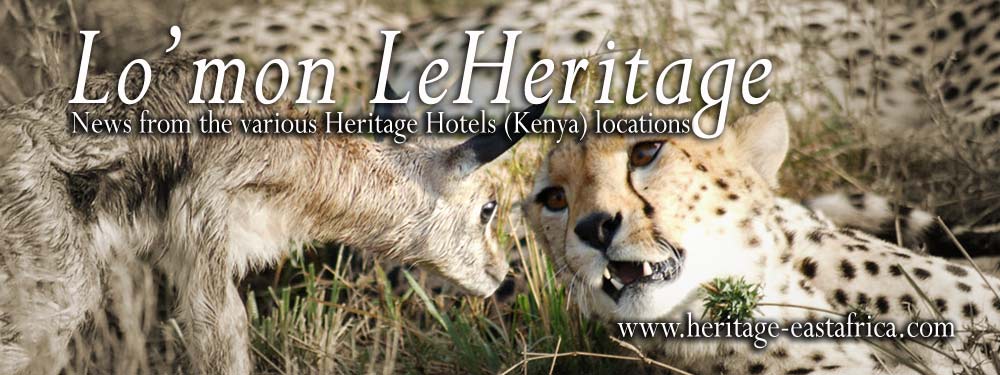In the silent night, nothing shows. Yet this blanket of darkness covers a nocturnal life that shies away in the heat of the day. A barrel shaped hippo on its tiny legs makes for the bushes.
A few metres away, a pair of silver-backed jackals hunt for the night feast of insects while elephants on the bank across the river siphon water up their trunks and into their mouth.It looks comical. We spot more. A herd of buffaloes, easily a hundred gallop away caught in the beam of the powerful torch. Their eyes sparkle like fireflies, their curved horns a pattern in the darkness.
“An elephant can take in 30 litres of water in a single ‘trunk’ full,” reveals Lekatoo Ole Parmitoro, the guide from Voyager Ziwani. Doe-eyed gazelles and graceful impalas dot the plains and as the spotlight passes over them, they vanish into the darkness yet they are there.
It’s nearly midnight when we return to Voyager Ziwani, which was a garrison for the German Schutztruppe during World War 1.
Nearly a century later, the military base is a relaxed tented camp under the Heritage flagship where the former ranch has been turned into a wildlife sanctuary expanding the range for wild animals from Tsavo West national park.
At the crack of dawn the birders are out to catch the first bird to leave the nest. Everything looks fresh – the grass with the dew, the lake so calm with water flowing through and the crocs lying so peaceful.
The ranger, Mwalimo Mwashighadi accompanies me with his ‘simi’ for a walk around the lake for you aren’t allowed to walk without a ranger. It’s an advice to heed.
Open jaws
The hippos with their tiny pink ears showing are back in the lake after a night of chomping between the tents and beyond. Nostrils give away the crocodiles in the water.
The hippos with their tiny pink ears showing are back in the lake after a night of chomping between the tents and beyond. Nostrils give away the crocodiles in the water.
Two are sunning themselves by the banks with mouths agape waiting for the birds to clean their jaws. Gleaming white bones of a young elephant, which died in the previous year’s drought, lie on the dry earth.
A Water Thicknee raises a fracas as we near her nest on the ground. It’s a single spotted egg – the size of a chicken egg – lying in the midst of elephant dung.
We move away and watch for it to return. “It will not come straight for the egg because that will reveal it. Instead the bird will stay around it to distract what it thinks is a potential predator,” says Mwalimo.
He points to the crocodile’s nest in the ground, now abandoned. There are almost 50 of these dinosaurian reptiles in the dammed lake. But it’s the bird life that is so profuse; pied kingfishers jack dive in sight of the crocodiles.
Dainty jacanas wade lightly on the floating leaves. Hundreds of wild geese and ducks life off in the warming air to perch on the tall acacias while the sophisticated Crowned cranes fly in.
A new friend who is enjoying the morning walk poses for a photograph with the open-jawed crocodile in the background (he’s a safe distance away). I get him in the frame with the crocodile looking like its got him in its open jaw when suddenly there’s a flurry of activity and in a second, the crocodile has disappeared and the camera’s flown out of my hand.
But l got the shot and no matter how dead a crocodile looks never ever approach it on foot because it can move like lightening. Our crocodile dashed for the lake on hearing the click of the camera.
More than an hour passes as we enjoy being in the wilderness and return for breakfast. The show continues with the hippos snorting and then the African fish eagle, resplendent in coats of molten lava and white fronts sweep over the lake with talons outstretched to catch their breakfast.
It’s the most entertaining breakfast with the duo so graceful that breakfast lingers longer than it should. But then the elephants wander by and we abandon breakfast to climb the wharf where in the reeds a mother hippo guards her newborn babe – it’s cute like most babies.
The elephants keep on grazing. The breeze ruffles the branches and the grasses but the clouds keep the curtain on Kili with Mawenzi completely invisible.
Article by Rupi Mangat, rupi.mangat@yahoo.com Reproduced Courtesy of Nation Newspapers. All rights Nation Media Group Ltd. As appeared on Saturday Magazine, 20th November 2010



